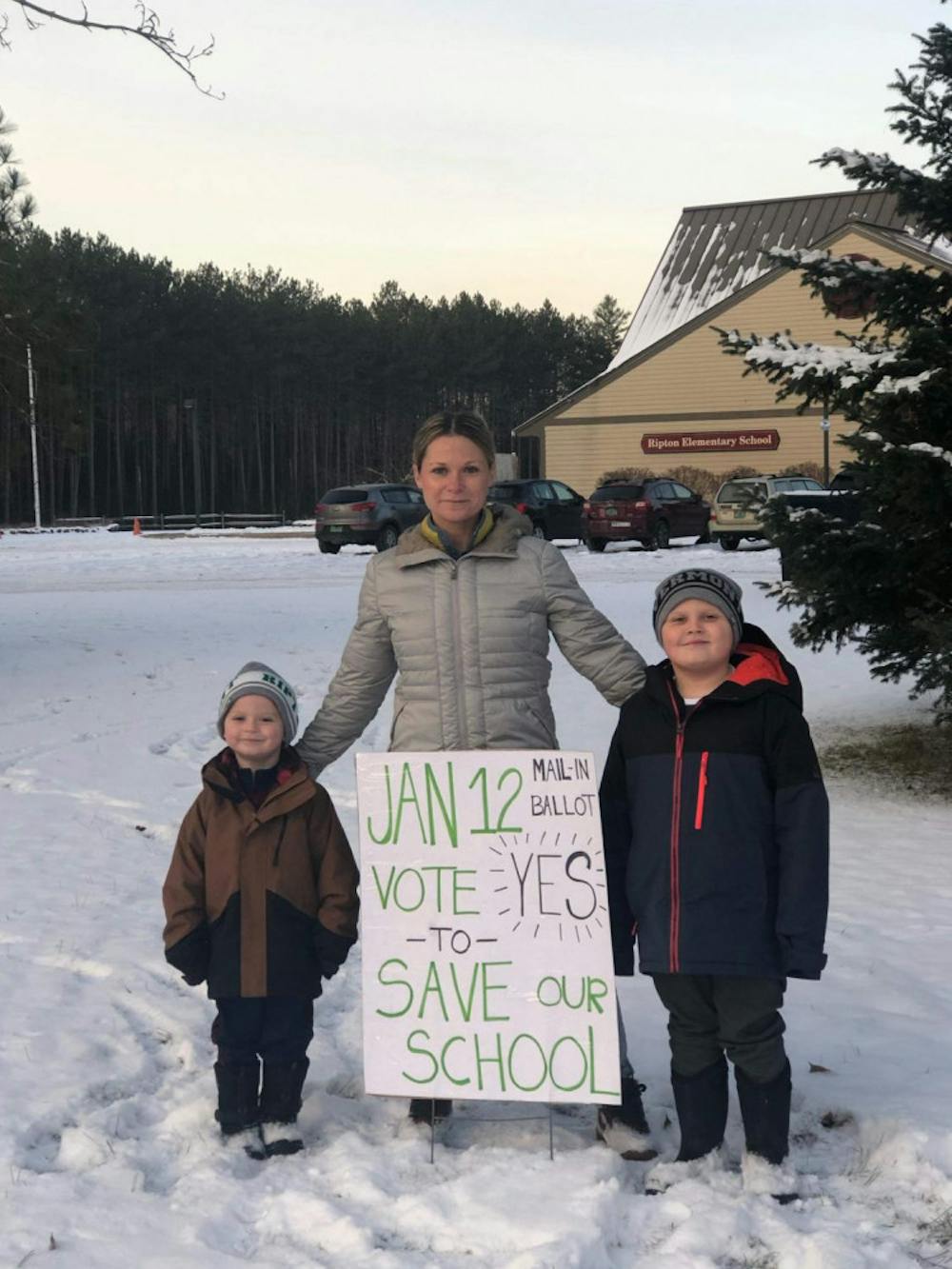Ripton voted on Jan. 12 to leave the Addison Central School District (ACSD) in an effort to keep its elementary school open amid declining enrollment, budget cuts and potential school consolidation. The town of Weybridge voted to stay.
Vermont schools have faced funding challenges in recent years due to the aging and decreasing population of the state. To combat ongoing demographic and funding shifts, ACSD is considering closing schools in Bridport, Ripton and Weybridge. The closures are meant to streamline the ACSD and eliminate the cost of maintaining additional staff and infrastructure. But in order for Ripton to leave ACSD, the other six towns in the district must vote to allow Ripton to leave. The bid will then move to the Vermont Board of Education, which will ultimately decide if Ripton can become independent.
Ripton mother Erin Lacey Robinson is leading Ripton’s effort to secede from ACSD. Robinson says she does not believe that closing Ripton Elementary School is a long-term solution to the budget problems that ACSD has cited as reason for consolidation. Her sentiment has been echoed by others parents in the town and across the state.
“The problems that our schools are facing across the state are not an individual school’s problems,” Robinson said. “It’s not all about declining enrollment.”
But it is, in part, about declining enrollment: Vermont’s schools are funded by property taxes from across the state, meaning that taxpayers from the Northeast Kingdom to Bennington are paying to keep schools open in places like Ripton. With so few students, the tiny elementary schools require higher overhead costs in comparison to larger schools with lower teacher-to-student ratios.
Robinson believes teacher and staff healthcare costs are the biggest drains on funding, but did not indicate other potential avenues for funding benefits for school employees. She said that budget issues will continue to occur until schools are better funded at the state and federal levels.
And she believes that closing Ripton’s school will only create additional problems, including hour-long bus rides for students and a lower ratio of teachers and paraeducators to students. This would mean students would spend less time outdoors and would receive less individual attention from educators.
“I’m worried about kids falling through the cracks,” she said.
Molly Witters, another Ripton parent involved in the effort to keep Ripton Elementary School open, voiced concerns about what closing Ripton would do to the community.
”Without Ripton Elementary School, the town becomes a vacation community and loses the reality and grittiness of working people that still exist here,” Witters said, adding that she is concerned young families and working class people will be less likely to settle in Ripton without a local school.
“People like myself think that [Ripton elementary school] could not only be the place for our children to be educated but could be even more of a community center,” Witters said. She said that a range of residents want the local school to stay open, from young families who moved to Ripton specifically for the school to elderly residents who attend the school’s Thanksgiving dinners.
The situation in neighboring school district Addison Northwest School District (ANWSD) foreshadows what may happen if Ripton Elementary School is closed.
Addison Central Elementary School closed in 2020 and students were moved to Vergennes Union Elementary School. ANWSD parent Mary O’Donovan said the transition has been better than expected. The process of consolidation, however, was painful.
“It was heartbreaking the way the school board treated us,” O’Donovan said of the school’s swift closure.
But O’Donovan has worked hard to put any hard feelings aside.
“When you send a kid to a new school, you can’t hate it,” she said. “You have to embrace it, otherwise your kid will feel it.”
O’Donovan also mentioned deeper issues in funding Vermont schools and recognized that improvements are necessary. More money is needed, she said, either at the state or federal level. As it is, school funding is coming mostly from property taxes, an untenable solution in a state with a declining population.
The Ripton Elementary School’s independence, if successful, will transfer operational budget woes into the hands of Ripton residents.
Witters said she believes funding will be the school’s biggest challenge going forward. This is in addition to questions of staff and student retention.
Far from feeling hopeless, however, Ripton’s organizers seemed energized, ready to work and think outside the box for creative solutions to save their school.
And if they succeed, Ripton parents will be able to make decisions on their own. As is, the school is represented by a single member on the 13-man ACSD School Board.
“So even if you do the math,” Wittters said, “there’s no way to really have a voice about our future school choices in the school district.”
Correction: An earlier version of this story misspelled Bridport as Bridgeport.

Ariadne Will ’22 is a local editor for the Campus.
She has previously served as a staff writer, where she covered topics ranging from Middlebury’s Town Meeting to the College’s dance performances.
Will also works for her hometown newspaper, the Daily Sitka Sentinel, where she covers tourism and the Sitka Planning Commission.
She is studying English and American literature with a minor in gender, sexuality and feminist studies.

Julia Pepper '24 (she/her) is the Senior Local Editor.
She previously served as a Local Editor. She is a Psychology major and French minor. This past spring she studied in Paris. She spent the summer interning at home in New York City, putting her journalistic cold calling skills to use at her internship doing outreach with senior citizens. In her free time she enjoys reading and petting cats.




